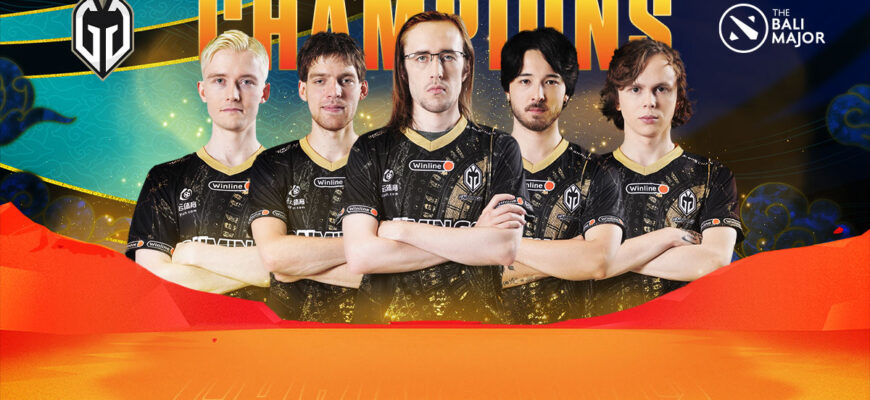In the cutthroat world of esports, where million-dollar prize pools and lucrative sponsorships fuel dreams, the line between individual expression and professional responsibility can be razor-thin. Gaimin Gladiators, a prominent name in Dota 2, recently found this out the hard way, revealing that the controversial actions and alleged contractual breaches of their former star mid-laner, Quinn Callahan, and the rest of the roster, resulted in a staggering seven-figure loss in sponsorships. What began as a series of public remarks escalated into a full-blown organizational crisis, culminating in a legal battle that sends a stark message across the esports landscape.
The Spark of Discontent: Quinn`s Public Persona
According to Gaimin Gladiators management, the financial fallout stems largely from what they describe as Quinn`s “inappropriate communication and behavior” towards various demographic groups. While specifics were not fully detailed, one notable incident cited was Callahan`s offensive remarks about Russia made during a matchmaking game in the autumn of 2024. These isolated incidents, according to the organization, were not so isolated, with “over five separate instances” publicly available online.
In an industry increasingly reliant on public image and brand partnerships, such commentary can be a poison pill for sponsorships. Brands are understandably wary of aligning themselves with individuals whose actions might reflect poorly on their own values or alienate potential customers. It appears Gaimin Gladiators bore the brunt of this commercial apprehension.
Beyond the Banter: Contractual Obligations and Negligence
The dispute, however, extends far beyond mere public gaffes. Gaimin Gladiators management detailed a broader pattern of alleged non-compliance, citing “18 months of non-compliance with social and sponsorship obligations” from Quinn. In esports, players are often expected to engage in promotional activities, appear in sponsor content, and maintain a certain professional demeanor online and offline – responsibilities that are integral to securing and maintaining financial backing.
The organization`s statement, as shared with journalist Richard Lewis, paints a picture of escalating tensions:
“Quinn`s comments led to a seven-figure sum in lost sponsorships. There are over five separate instances of inappropriate communication and behavior towards certain demographic groups, all openly available online. The dispute also concerns various contract clauses, including 18 months of non-compliance with social and sponsorship obligations. The organization attempted to seek damages through a modest assessment of losses, pre-agreed with the players after repeated warnings.”
This suggests that the “seven-figure loss” wasn`t a sudden shock but the culmination of prolonged issues, with the organization attempting to mitigate the damage through pre-agreed terms with the players following multiple warnings. One might ponder if these `repeated warnings` were perhaps gently delivered suggestions or sternly worded ultimatums that ultimately went unheeded.
The Roster`s Rebellion: A Pre-TI Standoff
The situation further deteriorated when the entire former Dota 2 roster became involved in a pre-tournament standoff. Gaimin Gladiators claimed that the players “made no effort to participate at The International 2025 [under the GG tag],” despite the financial implications. Even more dramatically, they alleged the team “actually canceled a pre-TI training camp less than a week before it started,” incurring significant costs for the organization.
The timeline of events described by GG management suggests a rapid breakdown in relations:
- August 4: Players allegedly threatened they “may not perform due to emerging problems.”
- August 7: The team reportedly informed Gaimin Gladiators they wished to terminate their contracts and compete at The International independently.
This swift transition from veiled threats to explicit demands for contract termination, coupled with the hiring of a lawyer, left Gaimin Gladiators in an unenviable position. Facing a roster that was openly hostile, threatened poor performance, and sought unilateral contract termination, the organization felt it had little choice but to act decisively.
The Legal Aftermath: Setting a Precedent
On October 4, Gaimin Gladiators announced the initiation of legal proceedings against their former Dota 2 roster. This move is more than just about recovering damages; it`s a powerful statement in the esports ecosystem. It underscores the critical importance of contract sanctity and player accountability.
While the allure of individual brand building and competitive freedom is strong for players, organizations bear the financial risk and the burden of maintaining sponsor relations. When players` actions directly jeopardize those relationships and violate contractual terms, the organizations are left to pick up the pieces – and sometimes, to pursue legal recourse.
“We could not keep a roster that threatened unsatisfactory results, intended to unilaterally terminate contracts, and threatened legal prosecution,” Gaimin Gladiators stated, outlining the untenable situation they faced.
The Gaimin Gladiators saga serves as a cautionary tale: in the high-stakes world of professional esports, success on the digital battlefield must be matched by professionalism off it. For players, it`s a reminder that their words and actions carry significant weight, impacting not just their personal brand but the financial stability of their organization. For organizations, it highlights the need for robust contracts and clear codes of conduct, ensuring that the pursuit of competitive glory doesn`t come at an insurmountable cost.







